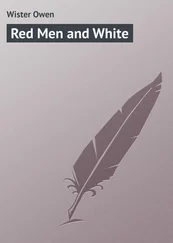Owen Wister - The Virginian
Здесь есть возможность читать онлайн «Owen Wister - The Virginian» весь текст электронной книги совершенно бесплатно (целиком полную версию без сокращений). В некоторых случаях можно слушать аудио, скачать через торрент в формате fb2 и присутствует краткое содержание. Жанр: Вестерн, на английском языке. Описание произведения, (предисловие) а так же отзывы посетителей доступны на портале библиотеки ЛибКат.
- Название:The Virginian
- Автор:
- Жанр:
- Год:неизвестен
- ISBN:нет данных
- Рейтинг книги:4 / 5. Голосов: 1
-
Избранное:Добавить в избранное
- Отзывы:
-
Ваша оценка:
- 80
- 1
- 2
- 3
- 4
- 5
The Virginian: краткое содержание, описание и аннотация
Предлагаем к чтению аннотацию, описание, краткое содержание или предисловие (зависит от того, что написал сам автор книги «The Virginian»). Если вы не нашли необходимую информацию о книге — напишите в комментариях, мы постараемся отыскать её.
The Virginian — читать онлайн бесплатно полную книгу (весь текст) целиком
Ниже представлен текст книги, разбитый по страницам. Система сохранения места последней прочитанной страницы, позволяет с удобством читать онлайн бесплатно книгу «The Virginian», без необходимости каждый раз заново искать на чём Вы остановились. Поставьте закладку, и сможете в любой момент перейти на страницу, на которой закончили чтение.
Интервал:
Закладка:
Molly thought these words over. She could not tell why they gave her a strange feeling. To her Vermont mind no suspicion of the truth would come naturally. But suspicion began to come when she returned from her ride. For, entering the cabin of the Taylors', she came upon several people who all dropped their talk short, and were not skilful at resuming it. She sat there awhile, uneasily aware that all of them knew something which she did not know, and was not intended to know. A thought pierced her — had anything happened to her lover? No; that was not it. The man she had met on horseback spoke of her having company soon again. How soon? she wondered. He had been unable to say when he should return, and now she suddenly felt that a great silence had enveloped him lately: not the mere silence of absence, of receiving no messages or letters, but another sort of silence which now, at this moment, was weighing strangely upon her.
And then the next day it came out at the schoolhouse. During that interval known as recess, she became aware through the open window that they were playing a new game outside. Lusty screeches of delight reached her ears.
"Jump!" a voice ordered. "Jump!"
"I don't want to," returned another voice, uneasily.
"You said you would," said several. "Didn't he say he would? Ah, he said he would. Jump now, quick!"
"But I don't want to," quavered the voice in a tone so dismal that Molly went out to see.
They had got Bob Carmody on the top of the gate by a tree, with a rope round his neck, the other end of which four little boys were joyously holding. The rest looked on eagerly, three little girls clasping their hands, and springing up and down with excitement.
"Why, children!" exclaimed Molly.
"He's said his prayers and everything," they all screamed out. "He's a rustler, and we're lynchin' him. Jump, Bob!"
"I don't want—"
"Ah, coward, won't take his medicine!"
"Let him go, boys," said Molly. "You might really hurt him." And so she broke up this game, but not without general protest from Wyoming's young voice.
"He said he would," Henry Dow assured her.
And George Taylor further explained: "He said he'd be Steve. But Steve didn't scare." Then George proceeded to tell the schoolmarm, eagerly, all about Steve and Ed, while the schoolmarm looked at him with a rigid face.
"You promised your mother you'd not tell," said Henry Dow, after all had been told. "You've gone and done it," and Henry wagged his head n a superior manner.
Thus did the New England girl learn what her cow-boy lover had done. She spoke of it to nobody; she kept her misery to herself. He was not there to defend his act. Perhaps in a way that was better. But these were hours of darkness indeed to Molly Wood.
On that visit to Dunbarton, when at the first sight of her lover's photograph in frontier dress her aunt had exclaimed, "I suppose there are days when he does not kill people," she had cried in all good faith and mirth, "He never killed anybody!" Later, when he was lying in her cabin weak from his bullet wound, but each day stronger beneath her nursing, at a certain word of his there had gone through her a shudder of doubt. Perhaps in his many wanderings he had done such a thing in self-defence, or in the cause of popular justice. But she had pushed the idea away from her hastily, back into the days before she had ever seen him. If this had ever happened, let her not know of it. Then, as a cruel reward for his candor and his laying himself bare to her mother, the letters from Bennington had used that very letter of his as a weapon against him. Her sister Sarah had quoted from it. "He says with apparent pride," wrote Sarah, "that he has never killed for pleasure or profit.' Those are his exact words, and you may guess their dreadful effect upon mother. I congratulate you, my dear, on having chosen a protector so scrupulous."
Thus her elder sister had seen fit to write; and letters from less near relatives made hints at the same subject. So she was compelled to accept this piece of knowledge thrust upon her. Yet still, still, those events had been before she knew him. They were remote, without detail or context. He had been little more than a boy. No doubt it was to save his own life. And so she bore the hurt of her discovery all the more easily because her sister's tone roused her to defend her cow-boy.
But now!
In her cabin, alone, after midnight, she arose from her sleepless bed, and lighting the candle, stood before his photograph.
"It is a good face," her great-aunt had said, after some study of it. And these words were in her mind now. There his likeness stood at full length, confronting her: the spurs on the boots, the fringed leathern chaparreros, the coiled rope in hand, the pistol at hip, the rough flannel shirt, and the scarf knotted at the throat — and then the grave eyes, looking at her. It thrilled her to meet them, even so. She could read life into them. She seemed to feel passion come from them, and then something like reproach. She stood for a long while looking at him, and then, beating her hands together suddenly, she blew out her light and went back into bed, but not to sleep.
"You're looking pale, deary," said Mrs. Taylor to her, a few days later.
"Am I?"
"And you don't eat anything."
"Oh, yes, I do." And Molly retired to her cabin.
"George," said Mrs. Taylor, "you come here."
It may seem severe — I think that it was severe. That evening when Mr. Taylor came home to his family, George received a thrashing for disobedience.
"And I suppose," said Mrs. Taylor to her husband, "that she came out just in time to stop 'em breaking Bob Carmody's neck for him."
Upon the day following Mrs. Taylor essayed the impossible. She took herself over to Molly Wood's cabin. The girl gave her a listless greeting, and the dame sat slowly down, and surveyed the comfortable room.
"A very nice home, deary," said she, "if it was a home. But you'll fix something like this in your real home, I have no doubt."
Molly made no answer.
"What we're going to do without you I can't see," said Mrs. Taylor. "But I'd not have it different for worlds. He'll be coming back soon, I expect."
"Mrs. Taylor," said Molly, all at once, "please don't say anything now. I can't stand it." And she broke into wretched tears.
"Why, deary, he—"
"No; not a word. Please, please — I'll go out if you do."
The older woman went to the younger one, and then put her arms round her. But when the tears were over, they had not done any good; it was not the storm that clears the sky — all storms do not clear the sky. And Mrs. Taylor looked at the pale girl and saw that she could do nothing to help her toward peace of mind.
"Of course," she said to her husband, after returning from her profitless errand, "you might know she'd feel dreadful.
"What about?" said Taylor.
"Why, you know just as well as I do. And I'll say for myself, I hope you'll never have to help hang folks."
"Well," said Taylor, mildly, "if I had to, I'd have to, I guess."
"Well, I don't want it to come. But that poor girl is eating her heart right out over it."
"What does she say?"
"It's what she don't say. She'll not talk, and she'll not let me talk, and she sits and sits."
"I'll go talk some to her," said the man.
"Well, Taylor, I thought you had more sense. You'd not get a word in. She'll be sick soon if her worry ain't stopped someway, though."
"What does she want this country to do?" inquired Taylor. "Does she expect it to be like Vermont when it—"
"We can't help what she expects," his wife interrupted. "But I wish we could help HER."
They could not, however; and help came from another source. Judge Henry rode by the next day. To him good Mrs. Taylor at once confided her anxiety. The Judge looked grave.
Читать дальшеИнтервал:
Закладка:
Похожие книги на «The Virginian»
Представляем Вашему вниманию похожие книги на «The Virginian» списком для выбора. Мы отобрали схожую по названию и смыслу литературу в надежде предоставить читателям больше вариантов отыскать новые, интересные, ещё непрочитанные произведения.
Обсуждение, отзывы о книге «The Virginian» и просто собственные мнения читателей. Оставьте ваши комментарии, напишите, что Вы думаете о произведении, его смысле или главных героях. Укажите что конкретно понравилось, а что нет, и почему Вы так считаете.










